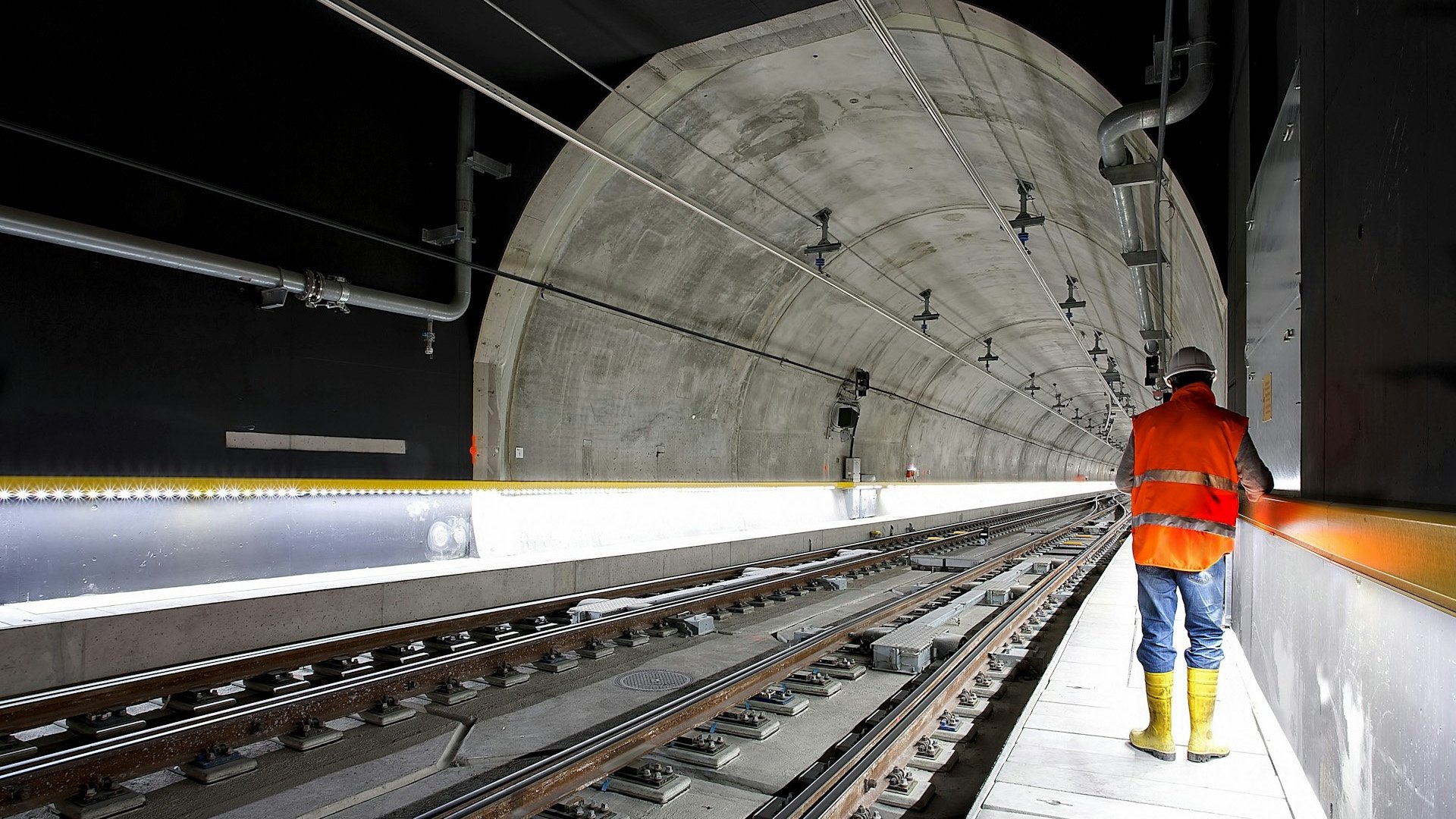Counting the Costs
(Source: Unsplash/Ricardo Gomez Angel.)
On a recent drive to Dallas, I opted to sit in the backseat with my five-month-old son, who was wiggling and straining against the straps of his car seat. He’s never really liked his car seat. Every time I put him in it, his face wrinkles into a whimper of protest. I try to comfort him even though I know he can’t understand. On longer trips, I’ll sit with him in the backseat and try to distract him with funny noises, games, songs, or, most dramatically, earnest assurances that I don’t like the whole car situation either and promises that one day, we’ll get around by bike.
Most of the time, my husband finds this amusing but this time, he empathized as he listened to me try to calm Levi from the front seat: “Makes you wish we had a train to Dallas, huh?” I nodded. A train to Dallas would transform this situation from a stressful endurance test to a joyful family adventure. We probably would travel up North more often to see family. Little Levi would have much more eye contact with his parents the entire time. I’d be able to hold him. Maybe we’d get some reading and writing done or have a little train picnic.
I think of “maybe”s like this often, usually while talking to friends who also live in Texas or in nearby states and who want to visit. We’ll do the usual Google maps routine trying to figure out a driving route before comparing the logistics with those of flying and then inevitably sending the exasperated text: “Man, really makes you wish we had trains here!” Eventually our efforts will fizzle out for the time being and we’ll settle for text messages and phone calls.
The conversation around alternative transit in the U.S. usually orbits around cost, whether it’s financial costs like the millions it takes to build public transit or spatial costs like reserving lanes in the city for buses or removing parking spots for bike lanes. These are the usual costs that draw all of the attention because they are the costs we’re most sensitive to.
Meanwhile, dozens of forgone opportunities go unmeasured and unmentioned. For instance, consider the story I just told about our family trip to Dallas. We have friends in Dallas, San Antonio, and Austin, yet we rarely see them because of the danger and stress associated with driving I-35. I haven’t measured “possible” trips deferred due to the lack of a train connecting Texas’s major cities, but over the span of a year, I could easily estimate at least half a dozen. And that’s not just trips forgone, those are memories with friends that won’t get made, not to mention dollars that won’t get spent at local businesses.
On a local level, I sometimes think about all the trips to local businesses I don’t make because I can’t access them on foot with a stroller; all of the encounters with friends that don’t happen because car-centric planning makes the organic “walk-over” or “pop by” impossible. Everyday, my husband and I negotiate who will use the single car we share. One of us is constantly giving up something, whether its a workout at the gym, extra time for him to prep for classes at the university library, a social gathering, or simply an ordinary errand.
In economics, we call this opportunity cost: the things we’re giving up to pursue a particular goal. These kinds of opportunity costs are very real, yet rarely get discussed in the context of transit reform, despite the fact that these constraints shape our lives in profound ways. How much of our loneliness epidemic could be credited to the fact that most of us can’t get errands done in our neighborhoods on foot and see other people face to face?
Cost is important. I’m not saying we should stop measuring costs like dollars, time, and traffic, but perhaps we can broaden the costs that matter. We’ve been so primed to focus on things like money, time, and convenience that we forget to measure other sacrifices: trips forgone, memories unmade, friendships forged or strengthened, or simply the ability of children to see the face of their parents as they travel.





Tiffany Owens Reed is the host of The Bottom-Up Revolution podcast. A graduate of The King's College and former journalist, she is a New Yorker at heart, currently living in Texas. In addition to writing for Strong Towns and freelancing as a project manager, she reads, writes, and curates content for Cities Decoded, an educational platform designed to help ordinary people understand cities. Explore free resources here and follow her on Instagram @citiesdecoded.